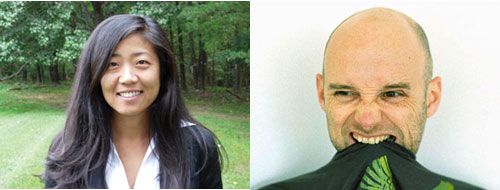Moby And Miyun Park Video Interview From Gristle Tour
Written by Vegetarian Star on Friday, May 21st, 2010 in Food & Drink, Male Musicians, Male Singers, Videos.
Treehugger posted a video from a talk given by Moby and Miyun Park, the two co-editors of the book about factory farming, Gristle, during one of their book promotion appearances.
Moby reiterated what he’s said before in interviews about how subsidies to big farms not only make it harder for people to buy healthier, organic, plant based food, but contribute to more destruction of the environment and more animals killed, as these subsidies are also used to start new farms.
Moby has previously estimated that beef would cost around $30 a pound if subsidies to the meat industry were removed.
Definitely no longer a value meal at McDonald’s, that’s for sure.
Possibly Related Posts:
- Chrissy Teigen Failed Vegan Experiment
- Mia Evans Is A “Masterchef Junior” Vegetarian Star
- The Passing Of A Vegan Prince
- Holly Madison Enjoys Vegan Smoothie From M Cafe In Beverly Hills
- Controversy Over Pro-Vegeterian Curriculum In Schools






